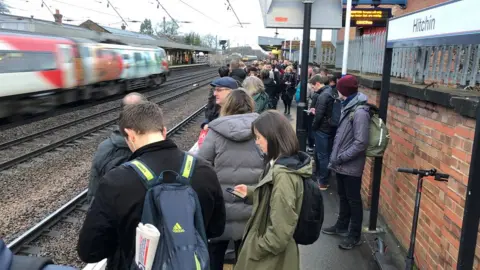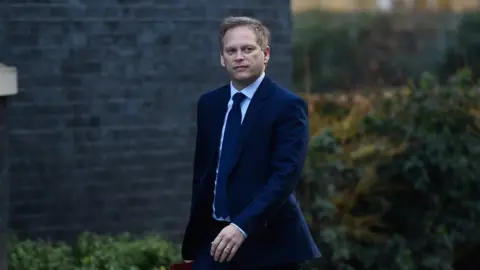Veterans railcard for cheaper train fares to launch on Armistice Day
 PA Media
PA MediaA new railcard offering discounted train tickets for military veterans will be launched later this year, the government has said.
The railcard - to be released on Armistice Day in November - will save a third off most train fares.
It will benefit more than 830,000 veterans who do not already qualify for existing discounts, the Department for Transport said.
Serving armed forces personnel already qualify for their own railcard.
"Every part of society should honour the debt we owe those who've served our country," said Transport Secretary Grant Shapps.
He said allowing ex-servicemen and women to travel more easily was "the least we can do".
"This railcard will help open up opportunities to veterans, whether through employment and retraining, or by strengthening links with friends and family," he added.
 Getty Images
Getty ImagesThe latest discount follows two new railcards which were launched last year - one for those aged 26-30, and another for teenagers aged 16-17 that came with a half-price fare reduction.
A HM Forces Railcard can already be bought by serving personnel for £21 a year.
Other railcards exist that are aimed at the over 60s or people who have a disability.
The new railcard for veterans will be available to buy from 11 November and will cost £21 for a limited period, before rising to £30.
It was one of the Conservatives' pledges during the general election campaign and forms part of the government's veterans strategy.
In February last year, a report from a committee of MPs found military veterans and their families were being "completely failed" when they needed mental health care.
Cabinet Office minister Oliver Dowden, who oversees work on veterans' issues, said: "Our new action plan will help to make the UK the best place in the world for veterans."
He said the Office for Veterans' Affairs - which was created in July - will "help veterans on jobs, housing and health through better data and a more joined-up approach".
The price of train tickets rose by 2.7% at the start of January, hitting millions of commuters. The rise was lower than the 3.1% increase at the start of last year.
